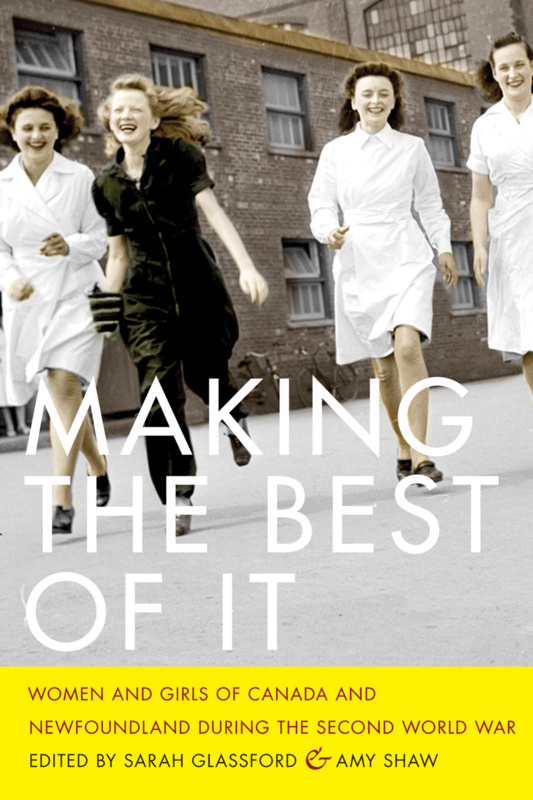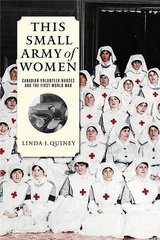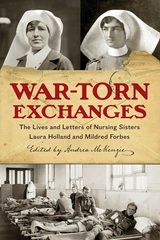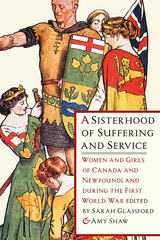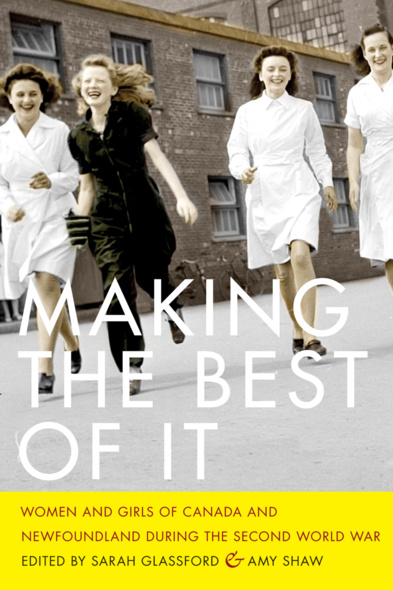
Making the Best of It
Women and Girls of Canada and Newfoundland during the Second World War
Many women who lived through the Second World War believed it heralded new status and opportunities, but scholars have argued that very little changed. How can these interpretations be reconciled? Making the Best of It examines the ways in which gender and other identities intersected to shape the experiences of female Canadians and Newfoundlanders during the war. The contributors to this thoughtful collection consider mainstream and minority populations, girls and women, and different parts of Canada and Newfoundland. They reassess topics such as women’s presence in the military and in munitions factories, and tackle entirely new subjects such as wartime girlhood in Quebec.
Collectively, these essays broaden the scope of what we know about the changes the war wrought, and draw on diverse methodologies to address wider debates about memory, historiography, and feminism.
Making the Best of It offers new insights into the impact of the Second World War and lays the foundation for a better understanding of the dramatic alterations that occurred in the lives of women and girls in Canada after the 1940s.
Students and scholars of history, women’s studies, and childhood studies will find this work compelling, as will others interested in women’s and gender history, children’s history, and the history of Canada and/or Newfoundland during the Second World War.
[T]his is a very useful study, one in which the authors make full use of British and American research, and the bibliography alone will make it invaluable.
This collection [of essays] importantly brings our attention to voices and perspectives that have excluded from World War II Canadian history and, in doing so, directs us to think further about areas that remain to be explored.
Making the Best of It compiles new scholarship on the multi-faceted experiences of Canadian and Newfoundland women in the Second World War. It is fresh, remarkably wide-ranging, and, in a word, outstanding.
A moving series of stories conveying the diverse experiences of women and girls during the Second World War, this book sets a major benchmark in its field.
Sarah Glassford is a social historian and an archivist in the Leddy Library at the University of Windsor. She is the author of Mobilizing Mercy: A History of the Canadian Red Cross, and coeditor of A Sisterhood of Suffering and Service: Women and Girls of Canada and Newfoundland during the First World War. Amy Shaw is an associate professor in the Department of History at the University of Lethbridge and a research associate with the Laurier Centre for Military, Strategic, and Disarmament Studies. She is the author of Crisis of Conscience: Conscientious Objection in Canada during the First World War and coeditor of A Sisterhood of Suffering and Service: Women and Girls of Canada and Newfoundland during the First World War.
Contributors: Graham Broad, Heidi Coombs, Marlene Epp, Claire L. Halstead, Sarah Hogenbirk, Barbara Lorenzkowski, Lisa Moore, Lisa Pasolli, Jennifer Shaw, Joseph Tohill, Sarah Van Vugt
Introduction: Community, Memory, and Historical Precedent / Sarah Glassford and Amy Shaw
Part 1: Women, Children, and the War
1 The Small Spaces of Childhood: Learning How to Feel in Atlantic Canada, 1939–45 / Barbara Lorenzkowski
2 Fostering Friendships: Canadian Girlhood and the Evacuation of British Children to Canada / Claire L. Halstead
3 Casualties of War: Children, Mothers, and Wartime Day Nurseries / Lisa Pasolli
4 Civic Identities in Conflict: Montreal's Anglophone and Francophone Private School Girls / Lisa Moore
Part 2: Women and the War at Home
5 “A Token Jew Everywhere”: Canadian Jewish Women on the Home Front / Jennifer Shaw
6 Shopping to Win the War: Female Consumers and Canada’s Home Front / Graham Broad
7 Mrs. Consumer Goes to War: The Consumer Branch and Economic Policy Making / Joseph Tohill
Part 3: Women and Overseas Humanitarian Work
8 Responding to “War’s Havoc”: The Relief Work of Mennonite Women / Marlene Epp
9 “It Keeps Our Spirits Up”: Emotional Labour and Resilience in the Canadian Red Cross Corps Overseas Detachment, 1943–47 / Sarah Glassford
Part 4: Women in Wartime Nursing, Paid War Work, and the Armed Forces
10 “War Comes to Labrador”: Nursing on the Home Front / Heidi Coombs
11 They Died so That Men May Fight: Depictions of Female Military War Dead / Sarah Hogenbirk
12 “Keep Your Mind on Your Job”: Women Workers, Beauty Culture, and Dangerous Bodies in the Wartime Industrial Workplace / Sarah Van Vugt
Conclusion: Making the Best of It / Sarah Glassford and Amy Shaw
Selected Bibliography; Index

